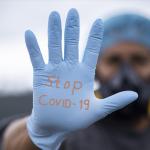"By the end of 2020, 44 countries and seven U.S.
Policy & Ethics
ProPublica has made uncovering the financial conflicts of interest between prescribers and pharmaceutical and medical device companies a bit of a cottage industry.
Three weeks ago, a California judge saw the light, and last week the Oklahoma high court followed suit.
Just when you think that maybe people are finally starting to figure out that the war on prescription opioid analgesics has instead been a war on pain patients and the doctors who treat them, a tidy package of misinformation
A few highlights:
A desire to stop the spread of COVID-19 misinformation has fueled increasingly intense efforts to restrict speech on social media platforms.
After recognizing SARS-COV-2 as a global threat last spring, the pandemic response quickly devolved into an ideological war.
I have written previously about menthol, which is not only a flavoring.
In response to claims by some critics of marijuana legalization that regular use might increase the risk of mental illness or suicide, my colleagues and I sought to d











